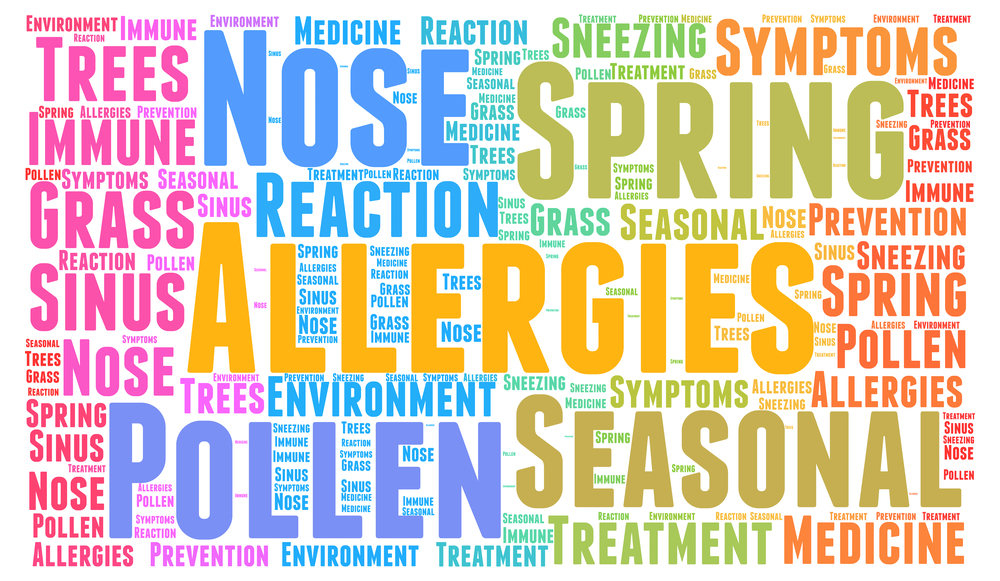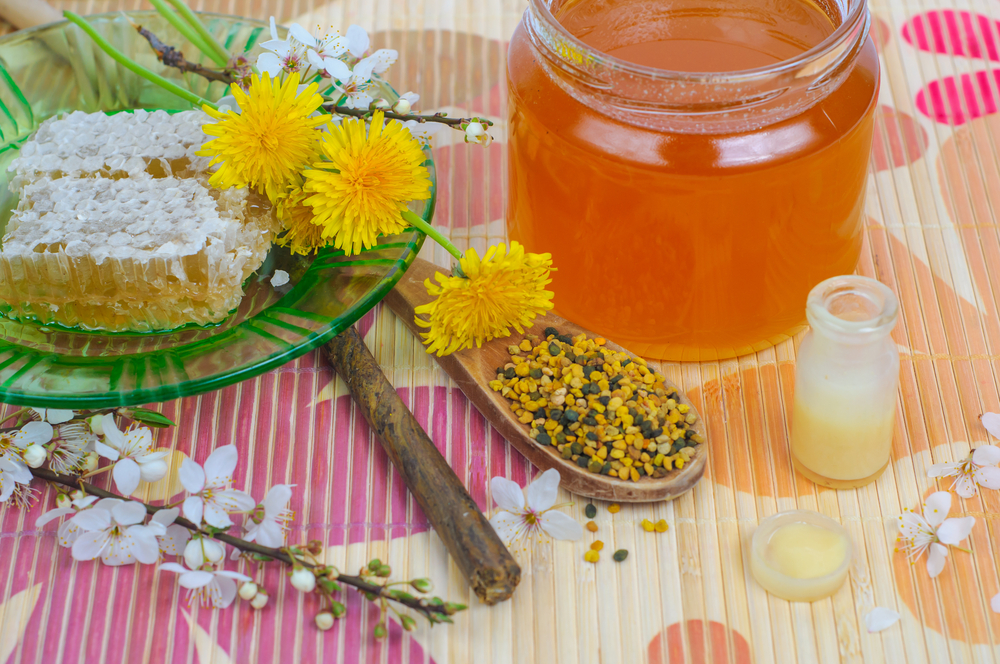
ricochet64 / Shutterstock.com
When allergy season comes into full swing, there are a few things you can do to alleviate your symptoms. Aside from spring cleaning and taking excessive Zyrtec, you can kick that stuffy nose to the curb with a few holistic wellness tricks.
Not only are over-the-counter drugs expensive for students suffering from both allergies and empty-wallet syndrome, but they can cause unwanted side effects. Flonase can cause severe nosebleeds, Zyrtec leaves some patients feeling fatigued or nauseous, and Claritin may result in blurred vision or diarrhea. Rather than gamble with this risky trade-off, why not try strategies that can be integrated into your day and enhance your quality of life? The following affordable, natural remedies are likely to leave you running into the fields instead of toward the tissue box.

Violeta Pencheva / Shutterstock.com
1. Consume local honey and bee pollen.
“Local honey is the big one that works,” says certified holistic nutritionist Lauren Spicer, “simply because you are essentially ingesting bits of your allergens (pollen) and slowly building resistance.” Enjoy adding local honey or bee pollen to Yerba or green or black tea. The steam from a hot cup can help break up mucus and clear the nasal passages. It can also hydrate and provide the body with antioxidants.
2. Stay hydrated.
Allergies can take a lot out of you, and I don’t just mean out of your nose! Yes, your teary eyes, scratchy throat, and dry skin are signs of allergy season, but they’re also signs of dehydration. Allergies are a histamine reaction, which causes an inflammatory response in the body. To counteract this reaction, avoid drinks and foods that dehydrate the body. Drink water and consider adding epsom salt. Journal your intake to be sure that you are ingesting enough throughout the day.
3. Cut inflammatory or allergen inducing foods out of your diet.
When allergies act up, the skin, throat, and eyes can become inflamed, so it’s important to avoid ingesting products that worsen the reaction. Lauren Spicer, suggests cutting out refined breads, sugars, and dairy products. “Very often, elimination or reduction of the consumption of these foods can help alleviate seasonal allergies significantly,” says Spicer.
4. Eat your prebiotics and probiotics.

Flaffy / Shutterstock.com
“Fermented foods rich in pre- and probiotics help balance the body and reduce allergy symptoms,” advises Spicer. Prebiotics are nondigestible carbohydrates that foster the growth of beneficial microorganisms, which feed probiotics and promote a healthy digestive system. Foods high in prebiotics include bananas, oatmeal, and asparagus. Probiotics control the growth of harmful bacteria. They are found in fermented foods, like soft cheeses, and those rich in good bacteria, such as yogurt. Though the two work together, they are not found in the same foods.
Changing the way you eat is not easy, but it’s worth it. Many individuals affected by seasonal allergies choose to leave behind medication for a more natural approach. Though the body’s response to these changes may not be quick, the benefits are huge. Some individuals have even seen their seasonal symptoms disappear. So take a chance, make a change, and who knows? Maybe you will save a buck on the tissues this year.
-
Health Insurance for Students: Your Options, Simplified
-
Understanding and Coping with Anxiety in College
-
What to Do After You’re Mugged
-
The Relationship between Depression, Suicide, and the Military
-
Could My Anxiety and Depression Actually Be PMDD?
-
Seven Benefits of Attending Alateen Meetings
-
Yoga: An Energizing Practice for Beginners
-
Getting Nutrients from Your Meal Plan
-
The Truth: Why You Should Get Fit to Finish the School Year
-
Surviving Homesickness as a Freshman in College
-
How Exercise and Exposure to Nature Help You Recover from Addiction
-
Preparing to Leave for College with a Chronic Illness

